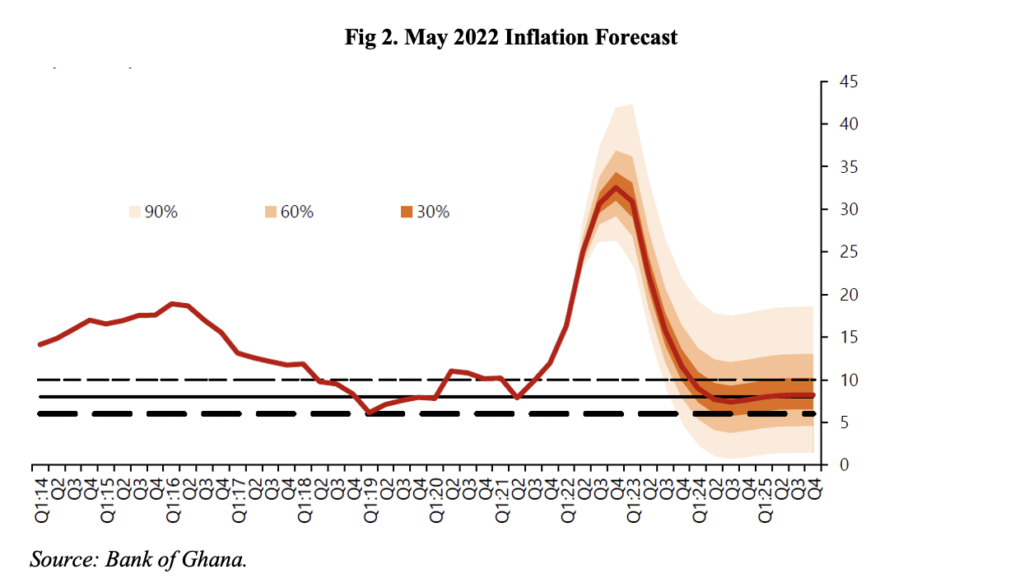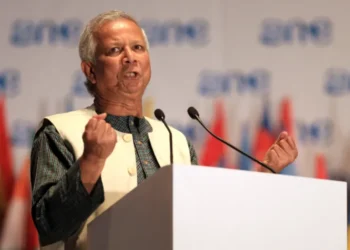Dennis Nsafoah, Assistant Professor of Economics at the Niagara University, has projected inflation to continue to rise in the coming months, peaking at about 34% before the end of the year.
The Member of Research Committee of Tesah Capital said that as high as an inflation rate of 29.8% is, it is still in line with market expectations because in the May 2022 monetary policy report, staff of the Bank of Ghana projected inflation rate to remain elevated above target until the second quarter of 2024.

“As a small open economy, Ghana’s inflation outlook is influenced by external factors in addition to domestic considerations. Global inflation and inflation expectation continue to remain elevated. In a related announcement, the Bureau of Labor Statistics (BLS) in the US reported that CPI inflation for June 2022 surged to 9.1% from 8.6% in May.
“This is the largest increase in US CPI inflation since November 1981. It will make a case for subsequent interest rate hikes in the US (and other advanced economies) and further tighten global financing conditions. If this happens, domestic inflation is likely to increase further in the coming months”.
Dennis Nsafoah
Next policy rate decision to do a good job
Dr. Nsafoah explained that the broad-based nature of the inflation rate increases the pressure on the Monetary Policy Committee (MPC) of the Bank of Ghana ahead of its next policy rate decision on July 25, 2022 to increase the policy rate for a third time this year.
In as much as there is evidence of external factors such as the war in Ukraine and continued supply chain disruptions driving inflation in Ghana, Dr. Nsafoah underscored that a broadened inflation also indicates excess demand in the economy.
He indicated that an increase in the interest rate will help slow demand and allow supply time to catch up.
“In January 2004, when the inflation rate was 29.0%, the policy rate stood at 21.5%, representing a real interest rate of -7.5%. With the current policy rate of 19%, history indicates the Bank of Ghana may further increase the policy rate to re-anchor inflation expectations and to prevent high inflation from becoming entrenched”.
Dennis Nsafoah
On the other hand, Dr. Nsafoah noted that the MPC may decide to stay on the sidelines and maintain the policy rate at the current level of 19%, which he said, could be explained by two main reasons.
In the first instance, he noted that the MPC has already increased the policy rate by 550 basis points since November 2021. According to him, most economists estimate that it takes an average of about 12 months for a monetary policy decision to be fully transmitted to the economy.
In view of this, he indicated that Ghana’s economy is yet to fully realize the full implications of the previous policy hikes. In addition, he said the June inflation of 29.8% is also within the Bank of Ghana’s forecast and may have already been anticipated in the previous policy rate hike of 200 basis points.
“Whether the MPC decides to maintain the policy rate or increase it, we expect the next policy rate decision to do a good job of re-anchoring markets expectation of the near-term inflation rate. In the absence of (or in addition to) a decisive policy rate hike, the MPC should communicate the future path of the policy rate”.
Dennis Nsafoah
Nevertheless, he noted that if the central bank could share with the public what it considers as the neutral interest rate (the rate at which monetary policy is neither accommodative or contractionary), it would guide markets and anchor expectations around the inflation target.
READ ALSO: Marburg Virus Outbreak: Handwashing Is A Good Intervention- Director of Public Health



















